- Faith ⬦ Read ⬦ Shabbat ⬦ Weekly Torah Portion
How to Reveal the Truth – Parshat Balak
They look the same. Both appear to be tzaddikim and act as if they only mean well. They both say they are only worried about the truth. The more you try to prove to them what the truth really is, the more they will try to show you that the opposite is true. So, how do we really know who is right and where the truth lies? This is the topic of this week’s parsha.
This week’s Torah portion is parshat “Balak.” The central topic in the parsha is the attempt by Balak, the King of Moav, to hire Balaam to curse the Nation of Israel, and G-d’s interfering with his thoughts and forcing him against his will to bless the Nation of Israel. This parsha contains such beautiful points on the one hand, and so many perplexities and wonders on the other. Who was Balak, and who was Balaam, and what is the connection between them? Why did the Holy One, blessed be He, first deny Balaam permission to go with Balak’s ministers, and yet He did allow him to go in the end? We will first look at a summary of what happens in the parsha and then we will offer an explanation from the words of Rabbi Natan.
After the death of the Kings Sichon and Og (recounted in parshat Chukat), Balak was appointed interim King of Moab and Midian. Balak hated the Nation of Israel and was looking for ways to expel them from the area. When he thought about how the Nation of Israel had defeated Sichon and Og, whose strength bordered on the supernatural, with victory that could not be explained by any form of logic, he realized that a normal war would be of no use, and he too had to come with a different way of battling them that went beyond the laws of nature.
Having no choice, Moav reconciled with Midian, a nation that they utterly despised, as Rashi explains: “And what did Moab see that caused them to take counsel with Midian? Since they saw that Israel was supernaturally victorious in their battles, they said, ‘The leader of this nation was raised in Midian. Let us ask them what his character is.’ Midian answered them, ‘His strength is solely in his mouth.’ They said, ‘We too will come against them with a man whose strength is in his mouth’” (Rashi on Numbers 22:4).
Then Balak remembered that he knew someone whose power was in his mouth, who had already proven himself in the past, and this was Balaam, who hated the Jews even more than Balak. Balak sent many honorable ministers to Balaam to ask him to come and curse the Nation of Israel, for he knew from experience that the curses of Balaam would be fulfilled “for I know that whomever you bless is blessed and whomever you curse is cursed” (Numbers 22:6). He just needed Balaam to come and curse Israel, and then he would be immediately able to destroy them.
Who was Balaam that he would have so much power in his mouth?
Balaam was a goy (non-Jew). He was evil. Yes, you read that right. If you ask, “Why did G-d rest His Shechinah on a wicked goy?” The answer is so the nations should not have an excuse to say, “If You had given us prophets, we would have gone back to behaving properly.” So, He sent them some prophets, but they breached the boundaries of morality. At first, they held themselves back from immorality, but Balaam advised them to offer themselves freely for prostitution (Rashi on Numbers 22:5). In public, Balaam acted as if he were a prophet—like one who was ascetic and celibate, clinging to the Creator. Secretly, Balaam was a lowly and abominable sinner who had an intimate relationship with his donkey, as our sages prove from the Scriptures (see Rashi on Numbers 22:30).
Balaam would have been very happy to accept Balak’s tempting offer of “a house full of silver and gold” in return for cursing the Nation of Israel, but he knew very well that only that which the Creator decreed would actually happen, but he did not reveal this to the messengers. When God said to him, “You will not go with them,” he said to the ministers, “The Lord has refused to let me go with you.” You are simply not important enough that I should go with you. So Balak raised the stakes and sent more dignitaries, who were higher in rank than the previous ones. And this time G-d said to him, “Arise and go with them, but only the word I shall speak to you, shall you do” (Numbers 22 5-21).
Balaam set off, riding on his donkey. An angel of mercy stood in the way with a drawn sword in his hand to prevent him from going. Three times the donkey deviated from the path in order to avoid the angel. First, it veered from the path and turned into a field, and Balaam struck it. The second time, it walked between fences of a vineyard, crushing Balaam’s leg against the wall, and he beat it again. The third time it had nowhere to turn, and it simply crouched down and refused to move! And then Balaam stuck it a third time.
At this point an incredible miracle occurred, something which had never happened before: the donkey spoke and rebuked Balaam to the point that he blushed from the humiliation. It revealed everything: his disgusting behavior, his malicious intentions to uproot an entire nation, and how he got his unique power to curse. Suddenly, G-d opened Balaam’s eyes, and he realized that an angel was standing in front of him with his sword drawn. He feigned innocence before the angel saying, “If it displeases you, I will return” (Numbers 22:34), as if he couldn’t understand on his own that he was supposed to return home.
In spite of everything, being the hard-hearted and wicked person he was, he still wanted to curse, but he wasn’t able to detect the exact moment that the Holy One was angry, and instead of cursing, he ended up blessing the Nation of Israel. In the end, when he saw that he was not succeeding in his evil plot, he thought of a diabolical plan: to entice the people of Israel to sin with the daughters of Moab. He told Balak: “Their G-d despises lewdness.” If they sin, He will become angry with them and destroy them. Unfortunately, some of the people stumbled, and tens of thousands fell due to this demonic plan.
That was a brief summary of our parsha, and we will not look at these matters in the light of one of Rebbe Nachman’s wondrous teachings:
Everyone must continually renew his faith in the Creator who created the world out of nothing. He is continually renewing the world and runs it according to His Will. This is one of the foundations of faith, that the world is not run by the forces of nature, even though it appears to be following natural laws. The Creator intentionally hid himself within creation, and made it appear as if the world were running on its own. He planted the wisdom in man to search for the Creator and reveal Him. So, it is man’s task in this world to discover the Creator and believe in him.
At this point an incredible miracle occurred, something which had never happened before: the donkey spoke and rebuked Balaam to the point that he blushed from the humiliation. It revealed everything!
However, there are “Masters of Nature” (deterministic scientists) who have heretical beliefs and deny the existence of a Creator. Even if they do not deny His existence completely, they claim that the Creator allows each person to behave any way he wants to and supposedly permits everyone to behave as he pleases, G-d forbid. Of course, this idea is completely false, and it is a huge mistake to think this is true. Their beliefs stem from the desire to act with complete abandonment, G-d forbid! Rabbi Nachman calls them “wild animals” who are predatory attackers (compare to Daniel 7:17). They are literally like animals who rip apart their prey and suck out their blood. These people are like wild beasts whose only intention is to uproot man from the path of life, so that instead of purifying his blood with good desires, they will pollute it with lust.
The way to be saved from this false ideology is through continual renewal. When man creates himself anew by adding holiness to his life each day, he strengthens his belief that everything was created through His Will. And even now, after the creation of the world, the Creator recreates everything according to His Will. There are those who, to the contrary, live out their lives without dedicating their hearts to trying to understand their eternal purpose—i.e., life in the World to Come—and this is the main reason that they think that everything is only run according to the forces of nature (Likutei Moharan II:4).
Let’s return to our parsha.
Rabbi Natan teaches that Balak and Balaam represent the “Masters of Nature,” those “wild beasts” who trample and devour their prey. Our sages explain the name Balak as being indicative of his evil nature. “Balak” is an acronym for “ba lalok” (“comes to lick”), meaning that he “come to lick up the blood of Israel.” All the sins that people commit are rooted in the murky blood which has not been properly purified. In this sense, Balak came to lick their blood, that is, to corrupt their blood, by making them fall into lust which would spiritually corrupt them and cause them to sin—especially with sins of lust, G-d forbid. We realize the extent of his maliciousness from the final step he took when he abandoned even his own daughters to prostitution to seduce the Nation of Israel (Rashi on Numbers 25:15).
Balaam, however, was even worse because he was literally embodiment of the “forehead of the snake.” This expression refers to the root of evil and the complete concealment of good. Rebbe Nachman calls this in Yiddish: “a frumer rasha,” an evil person who presents himself as G-d fearing. Balak’s intentions were obvious, so one could still distance and guard himself from him. Balaam, on the other hand, disguised himself with the pious cloak of an ascetic and a saint who received Divine revelations, while in fact he drew all his powers from the forces of impurity.
So, why did G-d give such a power of speech to Balaam, and where did his power really come from?
The answer is, just as with everything, a person must reveal for himself the true Will of the Holy One, blessed be He, but in order for the power of free choice to be balanced, the forces of impurity, which are referred to as the “Sitra Achra” (literally, “the other side”), must have the power to appear that they have an influence and even control over the world. The “Masters of Nature” try to show that even though there is a G-d, each person has the power to change the Heavenly influences according to his desires as he wishes. If you want to behave like a Jew, you cannot, G-d forbid, behave like a goy with total abandon and impurity.
 A person must reveal for himself the true Will of the Holy One, blessed be He!
A person must reveal for himself the true Will of the Holy One, blessed be He!
For example, how many times in history have we heard about Jews that wanted to come to the Land of Israel? They were literally prepared to give up their lives. They traveled without money, without means, and at actual personal risk to immigrate to the Land of Israel. How did they succeed in the end? According to the laws of nature, they had no chance, but they still succeeded because they acted with such tremendous self-sacrifice, that the Creator helped them.
Similarly, the opposite is true. There were evil goyim, who were poor, and yet with tremendous self-sacrifice, they traveled from their homes in order to study philosophy, and they later became revolutionaries and caused all kinds of troubles. Remember Napoleon Bonaparte, and the list goes on and on… They also had no chance of succeeding according to the laws of nature. Does this prove that what they did was the Will of the Creator? If not, how did they get His help to succeed in their evil designs? The answer is that “a person is lead according to the path he chooses.” At the end of the day, anything that is not true is also not eternal. They think they can manipulate G-d according to their desires. Even if they appear to succeed, it is really just an illusion. G-d only helped them in order to deceive them, not because it is truly His Will.
We can now understand this matter within our parsha:
G-d said to Balaam: “You will not go with them,” but the power of choice is so great that G-d seemingly leaves him room to make a mistake and allows run with it all the way. Also, in his final advice, Balaam said, “Their G-d despises lewdness,” as if this was something forbidden only for Israel and that he and Balak were allowed to behave in any despicable manner they chose. Basically, he wanted to manipulate the Will of G-d according to his own desires, but as we said, this was a mistake. As is known, the Holy One, blessed be He, hates lewdness in anyone, and the fact that he supposedly let them get away with such behavior did not mean that their end would not be a bitter one. In the end, Balaam, Balak, and also his daughters who had abandoned themselves to prostitution, were all killed and uprooted from both this world and the next.
So, how can one truly discern where the truth lies? The Midrash says: “Light” refers to the deeds of the righteous, and “darkness” represents the deeds of the wicked. Even so, how is a person to know which are the actions that G-d truly desires. The Torah says: “And G-d saw that the light was good” (Genesis 1). Our sages explain: “He saw that the world wasn’t worthy of using such a light, so he stored it away for the tzaddikim to use in the World to Come.” In our context, we can learn out that whoever really wants to know how to behave and really wants to know what G-d requires of him, must connect himself to the tzaddikim because the true light is hidden away with them, and only their deeds are truly the aspect of light and good, and they will bring us to eternal life in the World to Come.
(According to Likutei Halachot, Birkat HaShachar 5:72-93)
- angel of mercyBaLAaMBalaam's donkeyBaLaKbeyond the laws of natureblessings and cursesbreslevBreslovCreatorCreator's Lightemunahfaithfalse leadersfeaturedfree choicegood and evilHistoryimmoralityJewishjudaismKings Sichon and OgMasters of NatureMidianmiracleNation of Israelnormal warParshas BalakParshat BalakProphetsReb NosonRebbe Nachmantrue tzaddikwicked personWill of the Holy One
- 1 comment



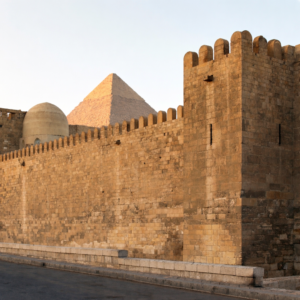
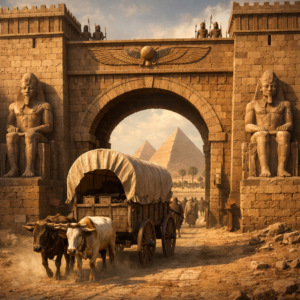

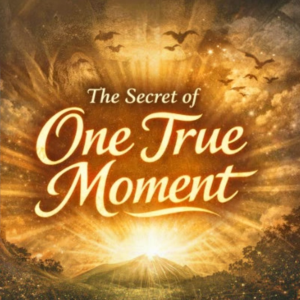



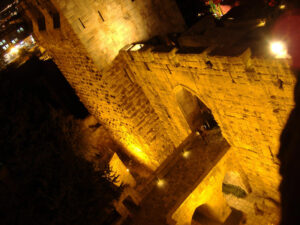

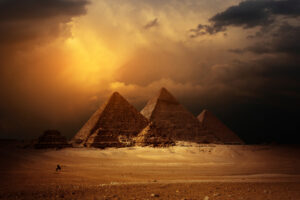
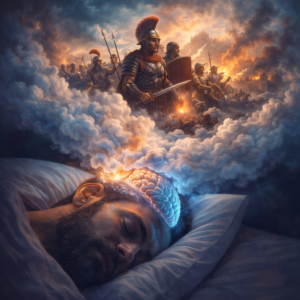
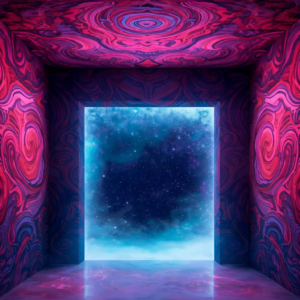




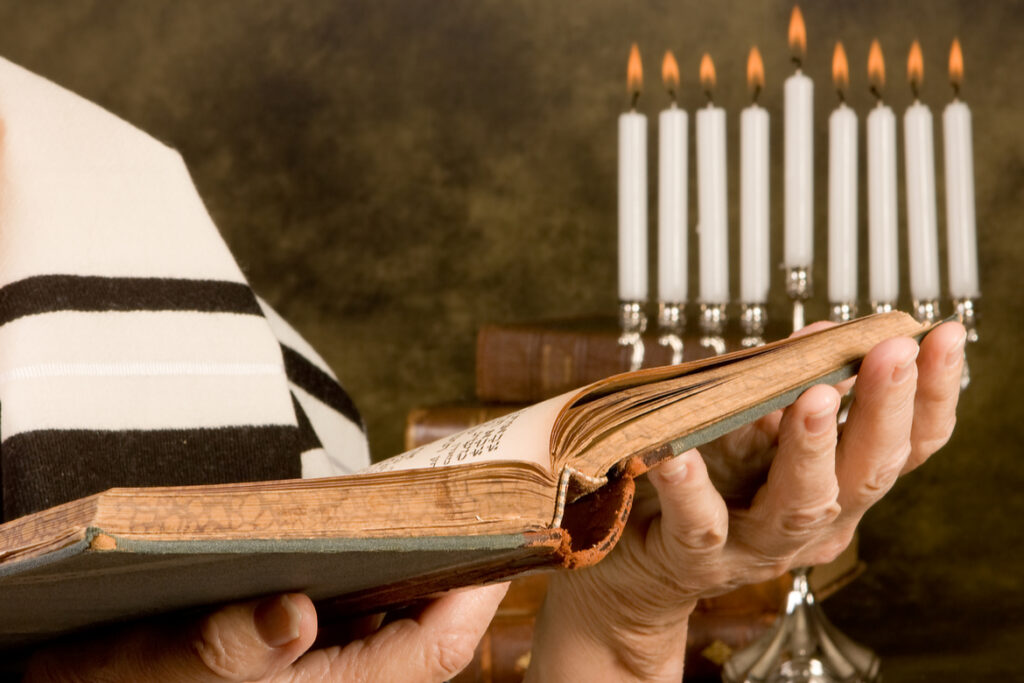



One Response
Beautiful. Very inspiring